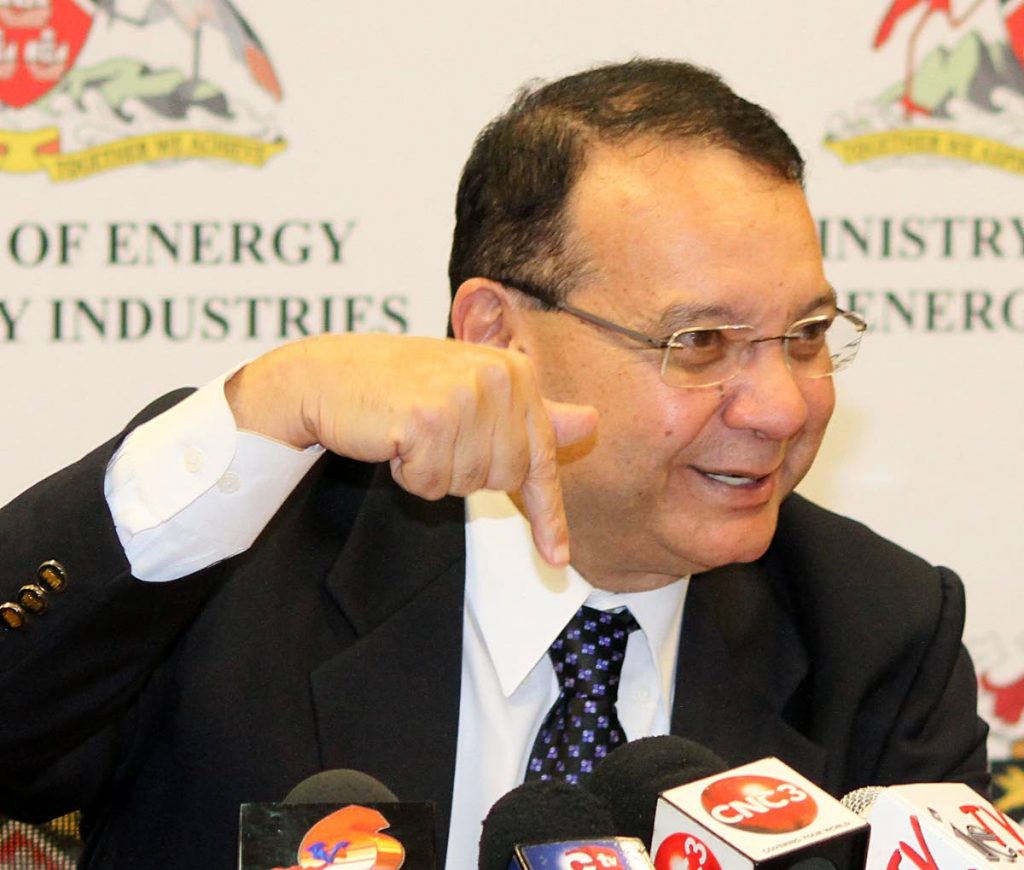Petrotrin, a ‘burning platform’

Petrotrin is broken and broke and faces difficulties to get the cash injection it urgently needs to fix its equipment and upgrade its product, said a Report on the Review of the Operations of Petrotrin laid in the Lower House recently.
Prime Minister Dr Keith Rowley named a seven-person committee to investigate Petrotrin and its possible restructuring after the Oilfield Workers Trade Union served a strike notice on Petrotrin last February after a break-down of wage-talks that was ultimately diffused by extended conciliation talks.
The report said Petrotrin runs “some of the most complex oil production and petrochemical activities in an industry that is inherently dangerous, innately high in geological, operational and financial risks, and hazardous in terms of health, safety and the environment.” Over the years Petrotrin has operated in a “state of confusion” and is today in “a very fragile condition”, and “lacks a clear purpose and identity” leading it to sometimes engage in activities inconsistent with the professional practices of a commercial enterprise.
“The poor condition of the company’s assets and a workforce that is losing its technical competence daily through attrition is a recipe for collapse. There is a need for a major paradigm shift in the governance and management of Petrotrin.” The report lamented the company was crippled by its history of changes in management. “Varying experience and cultures among management and an unworldly structure make the company complex and unmanageable.
“It is unprofitable and the outlook is for a worsening of its operations unless there is a capital injection.” This cash is needed for completion of the Ultra Low Sulphur Plant, increased oil production and improving asset integrity. Petrotrin’s oil production fell by 26 percent from 2006 to 2016, and from 50,655 barrels of oil per day (bopd) in 2007 to 41,263 bopd in 2016. At this rate it will decline 32,000 by 2021, unless the decline is arrested by a combination of enhanced oil recovery, know-how and cash injection, in which case production could soar to 63,297 bopd.
“Turning around operations will require significant expenditure and expertise as well as know-how in integrity management and late field life recovery. “Petrotrin’s recent history of ongoing leaks and seeps would suggest it is almost a ‘burning platform’.”
While Petrotrin represents a valuable source of income, improved stewardship is required. However regarding asset integrity, the exploration and production assets were deemed to be “at high risk and in need of urgent attention”, the cost of which to fix is $3.4 billion. Petrotrin is pinning hopes for improved profit margin at its refinery upon the completion of the ultra low sulphur plant by 2020.
This will increase profit by US$6 per barrel, equivalent to TT$2.2 million to $3.5 million per month. Petrotrin spent TT$168 million in 2015 on asset integrity repairs and TT$100 million in 2016. It is expected that TT$700 million and TT$380 million will be spent on asset integrity improvement for tankage and berths respectively through 2017 to 2021. “However the options which Petrotrin proposed for funding such projects seem highly unlikely to be achieved given its financial state.”
Petrotrin is saddled by a 0.7 debt ratio which is much higher than industry norms, a weak cash position and a long-term bond due to be retired in 2019. Revenues fell from TT$37 billion in 2012 to TT$16 billion in 2016 due to falling crude oil prices. In its findings the report urged Petrotrin be run as a “competitive business enterprise”, not as a vehicle for advancing other objectives.

Comments
"Petrotrin, a ‘burning platform’"